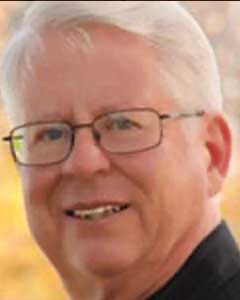Thirty-five years ago, after having migrated to Alberta from points east, I first encountered the name Chester Ronning. In an attempt to compose an article about his faith, I learned that his impact had gone considerably beyond the world of religion to political affairs and that in 1972 he had been named an Officer and a Companion of the Order of Canada. When Ronning died in 1984 at the age of 90, he was widely known in both Canadian and international circles as a diplomat, politician, educator and a person of faith.
Seeking an interview at his modest cottage in Camrose, southeast of Edmonton, I found it intriguing that a man of such public accomplishment should live with so little presumption. I was enthralled by how Ronning blended a profound Christianity with work in the world.
Ronning was born in 1894 in a remote province of China, the son of Norwegian-American Lutheran missionaries. He mirrored all his life the best values of his heritage and early experience. His family moved to the Peace River Country of Alberta, and in 1916, he completed a science degree at the University of Alberta in Edmonton.
After a final missionary stint in China, Ronning returned to Alberta, where he assumed the position of principal of Camrose Lutheran College. He was an ardent socialist in a traditionally conservative province, and ran-often unsuccessfully-as a legislative candidate for the United Farmers of Alberta and for the Co-operative Commonwealth Federation (later known as the NDP).
He served his country at diplomatic posts in China, Norway, India and the United Nations, and also served international commissions in Korea, Laos and Hanoi. During the mid-sixties, he was involved in a futile attempt to bring the Americans and Vietnamese together for peace talks.
He was an early advocate for Western recognition of what was then Red China and can be credited with helping Canada to establish diplomatic ties long before the U.S. and other countries were willing to do so.
Ronning was indeed far ahead of his time. Countering the common wisdom of Canadian and American foreign policy in the 1950s and 1960s, he saw that the future world required the engagement of China-something we take for granted today.
A man of liberal thinking in a conservative Albertan political ethos, Ronning worked creatively and respectfully with his philosophical adversaries. He was a person of faith whose early formation was in Scandinavian pietism, but who applied the best of his religious heritage to a newly emerging multicultural and multifaith Canada as he found it.
A true Canadian Renaissance man, Ronning was skilled in much to which he applied himself. All Canadians can be proud of him and follow an example currently reflected by the ending of hostilities between the United States and Cuba.
His legacy is preserved today in the Chester Ronning Centre for the Study of Religion & Public Life, University of Alberta, Augustana Campus, Camrose, Alberta.
Resources
China Mission: The Chester Ronning Story
National Film Board of Canada
http://www.nfb.ca/film/china_mission_the_chester_ronning_story/
Ronning Centre for the Study of Religion & Public Life
http://www.augustana.ualberta.ca/research/centres/ronningcentre/
Wayne A. Holst teaches religion and culture at the University of Calgary and helps to co-ordinate adult spiritual development at St. David’s United Church in Calgary.





